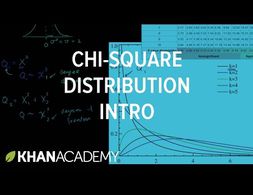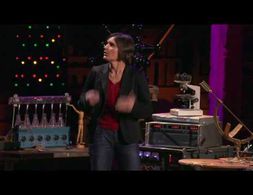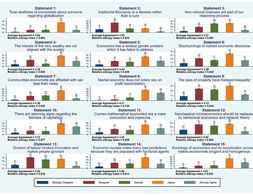✕
44 results
In this one-on-one interview, co-host Gerardo Serra talks with Felwine Sarr, author of Afrotopia (2016) and professor of economics at Gaston Berger University in Senegal. Topics include the relevance (or lack thereof) of development economics to conditions in African economies, the significance of African philosophy for thinking about the economic problems of the continent, and the status of the field of history of economic thought in Africa.
The definition of a chi-square distribution is given. Chi-square is defined as the sum of random normally distributed variables (mean=0, variance=s.d.=1). The number of added squared variables is equal to the degrees of freedom. With more degrees of freedom the probability of larger chi-square values is increased.
This text provides an easy to understand introduction to complexity economics for non-specialist audiences such as bachelor's students.
Steve Keen analyses how mainstream economics fails when confronted with the covid-19-pandemic. Mainstream economics has propagated the dismantling of the state and the globalization of production - both of which make the crisis now so devastating. More fundamentally, mainstream economics deals with market systems, when what is needed to limit the virus’s spread is a command system.
In the graveyard of economic ideology, dead ideas still stalk the land.
The recent financial crisis laid bare many of the assumptions behind market liberalism—the theory that market-based solutions are always best, regardless of the problem. For decades, their advocates dominated mainstream economics, and their influence created a system where an unthinking faith in markets led many to view speculative investments as fundamentally safe.
This course attempts to explain the role and the importance of the financial system in the global economy. Rather than separating off the financial world from the rest of the economy, financial equilibrium is studied as an extension of economic equilibrium. The course also gives a picture of the kind of thinking and analysis done by hedge funds.
This module examines current socio-political issues through the lens of pluralism, that is pluralism of theory, pluralism of method and interdisciplinary pluralism
Written by the Nobel Prize winners in Economics Robert Shiller and George Akerlof, this book shows how deception and manipulation play a big role in the economic behavior of individuals, as well as showing how the assumption of "perfect information" is far away from the truth. Through both quantitative data and stories of how to reduce this noxious phenomenon, the authors paint a pretty different picture of how markets really works in a hyper-communicative scenario like nowadays.
A review of:
[1] Intermediate Microeconomics, H.R. Varian
[2] Mikrooekonomie, R.S. Pindyck, D.L. Rubinfeld
[3] Grundzuege der mikrooekonomischen Theorie, J. Schumann, U. Meyer, W. Stroebele
Economic sociology is an entire subfield and one could write an series on it, so I’m going to stick to probably the most prominent economic sociologist and the founder of ‘new economic sociology’, Mark Granovetter.
The most successful multialternative theories of decision making assume that people consider individual aspects of a choice and proceed via a process of elimination. Amos Tversky was one of the pioneers of this field, but modern decision theorists – most notably Neil Stewart – have moved things forward. At the current stage the theories are able to explain a number of strictly ‘irrational’ but reasonable quirks of human decision making, including various heuristics and biases. Not only this, but eye movements of participants strongly imply that the decision-making process depicted in the theories is an accurate one.
This course introduces students to the relevance of gender relations in economics as a discipline and in economic processes and outcomes. The course covers three main components of gender in economics and the economy: (1) the gendered nature of the construction and reproduction of economic theory and thought; (2) the relevance and role of gender in economic decision-making; and (3) differences in economic outcomes based on gender. We will touch on the relevance of gender and gender relations in at least each of the following topics: economic theory; the history of economic thought; human capital accumulation; labor market discrimination; macroeconomic policy, including gender budgeting; household economics; basic econometrics; economic history; and economic crises.
A rethinking of the way to fight global poverty and winners of the Swedish Bank Prize for Economics.
Institutional economics focuses on the role of social institutions in terms of laws or contracts, but also those of social norms and patterns of human behaviour that are connected to the social organisation of production, distribution and consumption in the economy.
Pluralism includes mainstream economics. Our campaign for pluralism, including this series, have generally focused on ideas outside the mainstream on the basis that it gets plenty of attention already so we want to spend our time exposing people to alternatives. Nevertheless, mainstream ideas deserve some attention. On top of this, a curious feature of modern economics education is that some of the best ideas from mainstream economics are not even taught to undergraduates! During this series I will explore such ideas, starting today with the market construction technique known as ‘matching’.
The usual background and distinctions between complexity and neoclassical economics are presented Neoclassical economics deals with perfectly rational representative agents this creates states of equilibrium On the other hand complexity economics relaxes these assumptions to deal with responsive agents in an uncertain dynamic environment this creates states of disequilibrium More …
The goal of this course is to explore these differences in economic outcomes observed among women and men, measured by such things as earnings, income, hours of work, poverty, and the allocation of resources within the household. It will evaluate women’s perspectives and experiences in the United States and around the world, emphasizing feminist economics.
In this podcast, Nalia Kabeer talks about her work, criticising the way in which Randomized Control Trials (RCTs) is adopted as a sole form of impact assessment. At the beginning of the talk, she briefly describes The Ultra Poor Project (the context of her study), RCTs and its critiques (such as lack of acknowledgement of human agency, heterogeneity, and social context); also, the problem that most RCTs practitioners do not allow for qualitative research conducted in an integrated way as it might cause their studies “being contaminated.”
The Philosophy of Economics Foundational Text provides a systematic and well-structured overview over the field of philosophy of economics.
This article, looks at the complex interaction between an urban economy and the vegetation within that urban area. In summary, numerous studies have found a positive link between increased vegetation and social as well as personal health. It makes a case for increasing urban vegetation as a way to benefit local economies.
How do people make decisions? There is a class of models in psychology which seek to answer this question but have received scant attention in economics despite some clear empirical successes. In a previous post I discussed one of these, Decision by Sampling, and this post will look at another: the so-called Fast and Frugal heuristics pioneered by the German psychologist Gerd Gigerenzer. Here the individual seeks out sufficient information to make a reasonable decision. They are ‘fast’ because they do not require massive computational effort to make a decision so can be done in seconds, and they are ‘frugal’ because they use as little information as possible to make the decision effectively.
This chapter discusses the role of gender in economic relations, processes, and outcomes. Gender differences in economic outcomes such as labor force participation and wages have received growing attention from economists in the last several decades – a positive and much needed development in economic thinking.
This article explores if power dynamics in the household can be changed, and if so, how. In this context the focus is laid on government childcare policy and its various channels of possible influence.
An essay of the writing workshop on contemporary issues in the field of Nigerian economics: In Nigeria, it appears that there is nothing in the constitution, which excludes the participation of women in politics. Yet, when it comes to actual practice, there is extensive discrimination. The under-representation of women in political participation gained root due to the patriarchal practice inherent in our society, much of which were obvious from pre-colonial era till date.
A historical glimpse of how economists of the 19th century debated the usefulness of mathematics to economics
Esther Duflo discusses the fact that in social policy one cannot check the big questions, i.e. whether development assistance as an aggregate is helpful, because there is no counterfactual. She then suggests to focus on smaller questions such as what prevents or incentiveses people from immunizing their kids or whether mosquito bednets should be distributed for free. These questions can be answered by using randomized control trials as in the medical sciences. Thus, she argues, by bringing the experimental method to social policy analysis better decisions as to where allocate funds can be made.
Geographical economics starts from the observation that economic activity is clearly not randomly distributed across space. This revised and updated introduction to geographical economics uses the modern tools of economic theory to explain the who, why and where of the location of economic activity. The text provides an integrated, first-principles introduction to geographical economics for advanced undergraduate students and first-year graduate students, and has been thoroughly revised and updated to reflect important developments in the field, including new chapters on alternative core models and policy implications.
Mohsen Javdani and Ha-Joon Changonline examine the effect of ideological bias among economists through a randomised controlled experiment involving 2,425 economists in 19 countries. The analysis provides clear evidence for the existence of ideological bias as well as of authority bias among economists.
The core idea of ecological economics is that human economic activity is bound by absolute limits. Interactions between the economy, society and the environment are analysed, while always keeping in mind the goal of a transition towards sustainability.
Approaching the law of nature that determines all forms of economy. The bulk of economic theory addresses the economic process by setting out on a catalogue of aspects, seeking the laws in the aspects and hoping to get together a reliable view of the whole.
Aim of this intensive workshop is to understand macroeconomic workings of climate change as as the background of sustainable finance; to analyse financial assets with ESG (Environmental, Social and Governance) criteria attached to them and their markets and important institutional players; to develop a critical perspective on the current setup of sustainable finance; and to synthesise this knowledge by applying it on in-depth case studies.
The global financial crisis (GFC) led to increasing distrust in economic research and the economics profession, in the process of which the current state of economics and economic education in particular were heavily criticized. Against this background we conducted a study with undergraduate students of economics in order to capture their view of economic education.
We use cookies on our website. Click on Accept to help us to make Exploring Economics constantly better!





























